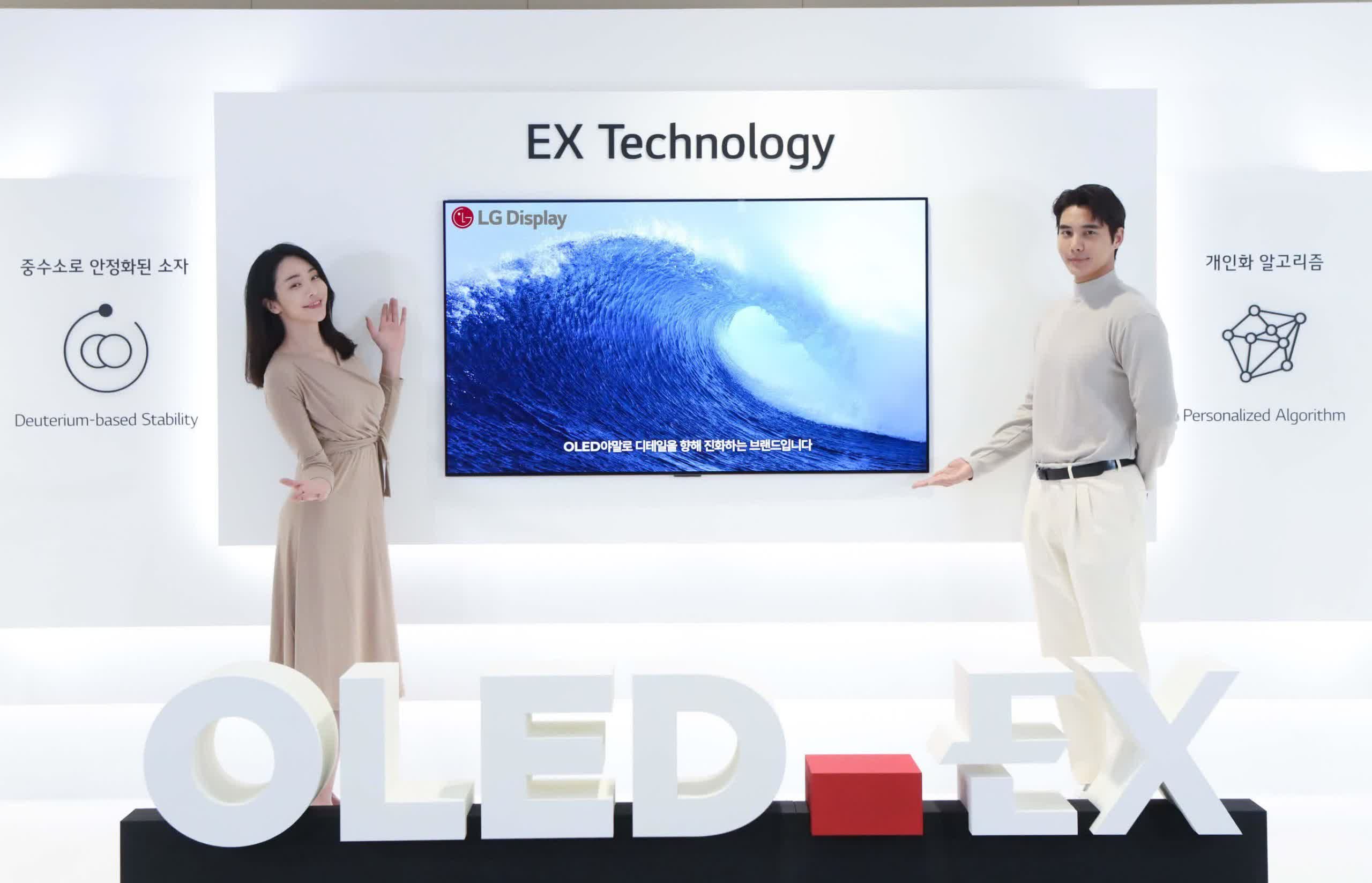Why it matters: While OLED televisions have several advantages over LCD-LED sets, one area where they can’t compete is the brightness. But LG Display says its next-generation OLED EX technology solves this problem, enhancing brightness up to 30 percent compared to conventional OLED displays.

OLED EX, the latter part an acronym of 'Evolution' and 'eXperience,' has the same distinctive OLED characteristic whereby each pixel emits light independently without requiring a separate backlight, resulting in perfect blacks, faster refresh rates, and no blooming.
The biggest issue with OLEDs is that most sets currently peak at around 500 – 600 nits, lower than what many high-end non-OLED televisions are capable of reaching, but LG Display addressed this by converting the hydrogen elements present in organic light emitting elements into stable deuterium, enhancing their stability and efficiency, allowing them to emit more light.
"Deuterium is twice as heavy as normal Hydrogen, and only a small amount exists in the natural world – as only one atom of Deuterium is found in about 6,000 ordinary Hydrogen atoms," writes the company. "LG Display has worked out how to extract deuterium from water and apply it to organic light-emitting devices. When stabilized, the Deuterium compounds allow the display to emit brighter light while maintaining high efficiency for a long time."

LG Display adds that OLED EX brings improved color accuracy, too. It uses personalized algorithms to predict the usage of 33 million OLED diodes in an 8K display so it "precisely controls the display's energy input to more accurately express the details and colors of the video content being played."
The technology can also benefit the physical design of a TV. LG Display says it has been able to reduce the bezel thickness from the original 6 mm to 4 mm on 65-inch OLED displays.
LGD notes that is has sold more than 10 million OLED TVs over the last two years, and despite the global TV market declining 12 percent this year, it still saw a 70 percent growth in OLED sales through 2021.
LG Display will integrate OLED EX technology into all of its OLED TV panels from Q2 2022. Let's hope it works as well as the company claims.
https://www.techspot.com/news/92783-lg-display-unveils-next-gen-oled-ex-tech.html